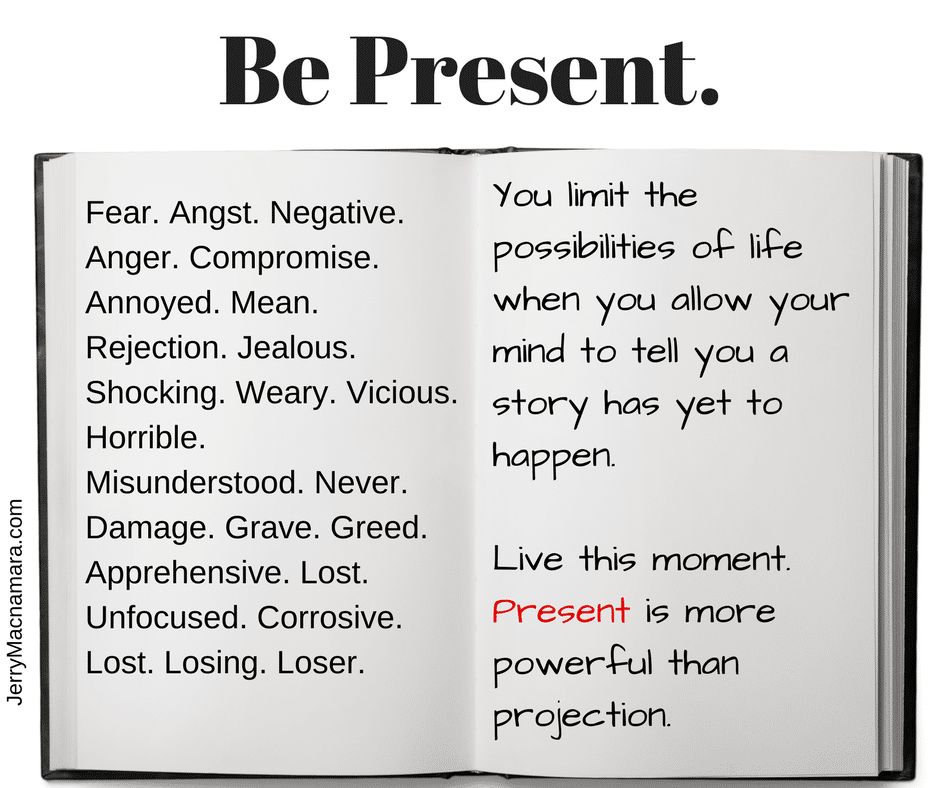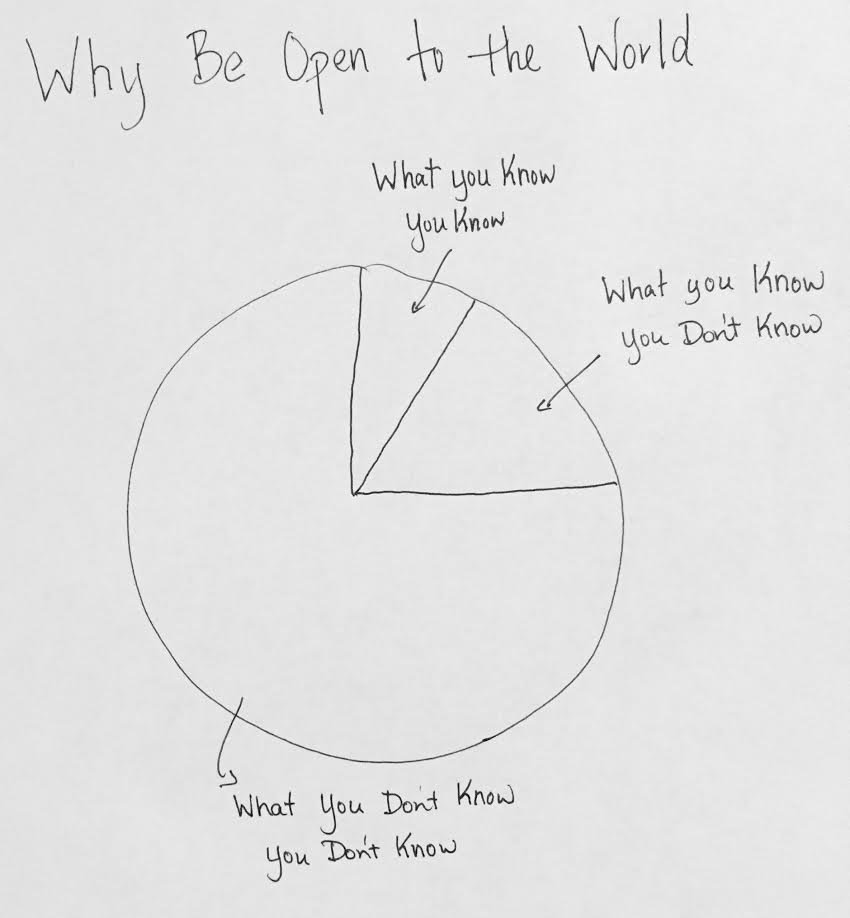
Thinking Thursday
The Story that Hasn’t Happened
Our mind is an awesome and incredible weapon. It can also be so damn destructive. After all, Charles Swindoll coined, “Life is 10% what happens to me and 90% how I react.”
Consider this story:
A man traveling late at night through the Midwest cornfields blows out a tire. He cusses as he hops out onto the dark, desolate road and saunters back to the shredded tire. Knowing that he lent his spare tire to a friend, he feels trapped. It’s 11pm. He’s out in the boonies. He starts to get concerned.
“How the hell am I going to get out of this one?” he thought as he looked at his phone, which seemingly taunted him with, “No service.” He began searching for his options. A light on a small farmhouse shone about three quarters of a mile away. “I hope someone is there who can help me,” he mumbled to himself as he began the trek down the old road.
He continued, “If someone is there, I hope they answer the door. It is late and they don’t know me.”
As he made it halfway there he thought, “Man, the way my day has been going. I bet they’re not going to answer the door. What am I going to do in this Godforsaken place? My tire is busted out. My phone has no service. I’m screwed.”
As he reached the head of the driveway, the second floor’s lights went dim. “I knew it,” he thought, “there is no way they are going to help me.” He began to get more animated and agitated as he broke into a jog up the winding, dirt driveway.
By the time he reached the door, his temperature had risen. He was sweaty. He was angry. He banged on the door. No answer. He kept banging on the door yelling, “I know you are in there. I saw you turn out the lights.”
Finally, the porch light flipped on. As the door opened, an old man appeared in his bathrobe. Before the old man could say a word, the man with the flat tire reeled back and punched him in the nose.
“See that old man! That’s what you get for not helping me!”
Stories We Tell
When we write a story that hasn’t yet happened, we bring all our baggage forward, weighed down by the experiences, hopes, disappointments and fears of the past. As a result, we limit future possibilities to only the ones we imagine. Yet, there are so many more possibilities in life.
Think about the story. The old man never had a chance. He opened the door, maybe ready to get out of bed, put on clothes and help, but the man with the flat tire had convinced himself – solely in his own mind by applying his own value filter on the situation – that the man was not going to help. As a result, he punched him in the nose. He wrote a story that had not yet been written.
Consider other common stories you may tell yourself:
- “It’s all who you know.” Well, there are plenty of people who started out not knowing anyone. But, if you wrote that story, you would be doomed. There would be no point and no reason to start the journey to do the work to succeed.
- “She won’t say, ‘Yes.’” You’ll never get the date of your dreams unless you ask. How do you know what he/she will say unless you ask the question? You don’t know someone else’s path, so don’t answer for them. Trust me. I know this one from experience. Right, Rachel? 🙂
- “I’m not smart enough.” Everything can be learned with enough time and effort. Believing the story of “cannot” means that you “will not.” You will not even try. Yet, all of us start the journey to knowledge with incompetence – and somehow build competence.
The Impact of Stories
When you write a story that hasn’t yet happened, your mind begins to believe it. Once you believe it, the mind adopts it as fact – whether it happened or not. This limits your ability to write your own unique, creative story through action.
Let’s be clear. There is a critical difference between planning and preparation and writing the story that hasn’t yet happened. Preparation is simply ripening your mind to accept the many results that could occur. Writing the story assumes that it has already occurred. Preparation creates openness whereas writing the story limits possibilities. One creates power the other creates destruction.
Why Being Present & Open is Important
When we close ourselves off, we only allow a fraction of our world to appear. Think about the three pieces of your world:
- What you know, you know (I know it and I know I know it.)
- What you know, you don’t know (I know that I don’t know it.)
- What you don’t know, you don’t know (I have no idea about this existence, possibility or opportunity)
The first two parts are fractional pieces of the world and truly a subset of the world we have experienced so far. The third is the much larger, unknown world to us. If you are not open, you are blind – and will always be blind – to all the things you don’t know, you don’t know. That’s huge!

Seize the Power of Present & Open
The real battle for success here is to be present & open to opportunities. Before you say, “I can’t do that” or “I can’t help myself to jump in,” first stop telling yourself a story about what you can and can’t do. And, second, recognize that being present and open is a mindset skill that can be developed and honed (four stages of skill development). Here are three guiding thoughts that will help you develop this skill:
- Put your pen away. Molly Fletcher said it right, “To be fearless, you must be curious and vulnerable to possibilities.” Writing a story creates mental comfort (“I know how this will end, so I don’t have to try.”), but it also closes possibilities. In other words, to experience the fullness of the world, you can’t always be in control. You must be present in the moment and open to experience it for yourself.
- Respond, don’t react. Have you ever witnessed a reactionary argument that positively built relationships and solved problems? I haven’t. A reaction is created from an unwritten future state – an expectation of something that hasn’t happened; responding stays present trying to solve the issue. Stay open and present.
- Seek First to Understand, then to be Understood (Habit 5, 7 Habits of Highly Effective People). When we genuinely stay in the moment to understand another’s point of view, we stay open to possibilities. We stop jumping to conclusions or interjecting our own value filter onto the conversation. Restraint to listen, clarify and understand places you squarely in a position of power. And, that power resides in being open to a world of possibilities – places of personal blind spots we have never considered because our own experiences have yet to take us there.
Instead of writing the story that hasn’t yet happened, be present in the one that is happening. Learn to breathe your way through the moments where you feel compelled to interject and jump to conclusions. Live your life without the prejudice and weight of a world that doesn’t yet exist. Seek truly to understand before you form your view of the future. And then, respond to it as it comes.
Take control. Stop walking around punching people in the nose simply because you’ve told yourself a story that hasn’t happened. And, what you’ll unlock is real personal power.
So, be honest. What stories are you writing that haven’t yet happened?




I concur- appreciate the messages.